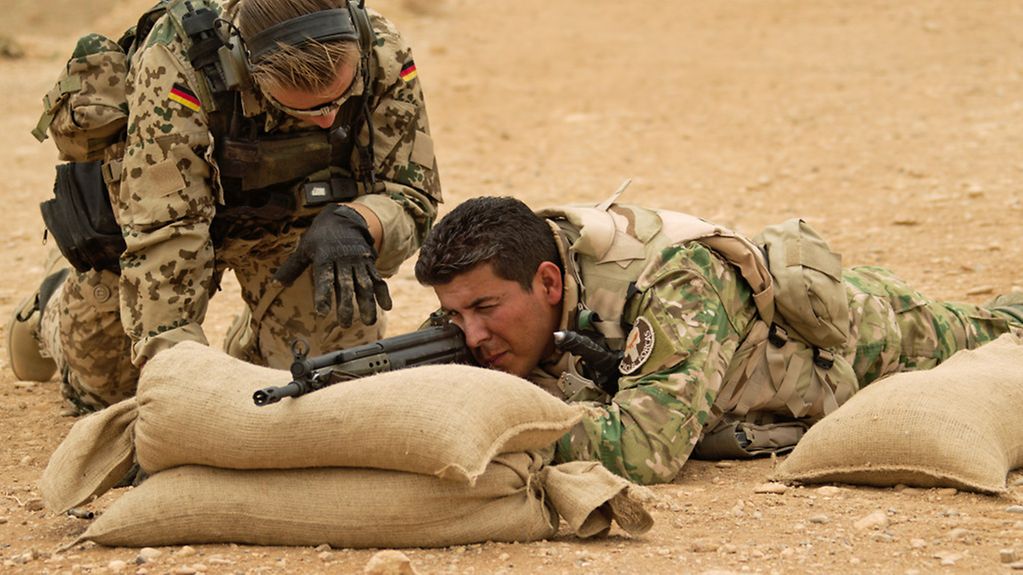The fight against IS
The Bundeswehr is to be deployed in northern Iraq. The German Bundestag has approved the motion of the German government. Up to 100 German soldiers are to train Kurdish security forces in the fight against the terrorist organisation IS.
2 min reading time

The Bundeswehr mission is to train the Kurdish Peshmerga fighters in Iraq
Photo: Bundeswehr/Wilke
The training mission means that the German government will be doing its bit to ensure the sustainable development of the Iraqi armed forces. The mission has been approved for a limited period until 31 January 2016.
The support will be provided in response to requests lodged by the Iraqi government and within the framework of international efforts to fight Islamic State (IS). A maximum of 100 soldiers may be deployed for the training mission.
The Bundeswehr’s role
The mandate provides for the Bundeswehr advising and training Iraqi armed forces. The duties of German soldiers will include coordinating the delivery of humanitarian relief supplies and military equipment in northern Iraq.
Military training courses are also to be provided for Iraqi forces in northern Iraq. A limited number of German soldiers are to be attached to the staff units of the international alliance against the terrorist organisation IS in Iraq and Kuwait.
The training mission will take place in northern Iraq in the area around Erbil and in the Kurdistan Region of Iraq.
IS a threat to world peace
During the first reading in the German Bundestag in December 2014, both Federal Foreign Minister Frank-Walter Steinmeier and Federal Defence Minister Ursula von der Leyen made it clear that the mission is part of the international efforts to fight the terrorist organisation Islamic State.
After the Federal Foreign Minister had clearly laid out the constitutional basis for the mission, he underlined the fact that stabilisation in the region will require a concerted effort involving political, humanitarian and military engagement. Humanitarian aid can only reach people in the region if the transport channels cannot be blocked by IS and if the Iraqi and Kurdish governments communicate.
The Federal Defence Minister reported that on her visit to Iraq and Kurdistan in January she had clearly felt the common will of those responsible to stop IS. She was able to establish that the relief supplies to date have been effective. Nevertheless, she said, there is still an urgent need for training and equipment for Peshmerga’s military campaign against IS.
With international partners a training centre is to be established in Kurdistan Region, thus making a tangible and sustainable contribution to the Peshmerga’s fight against IS, reported the minister.